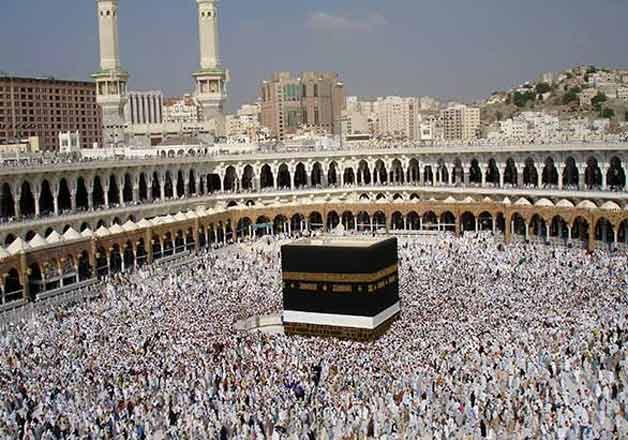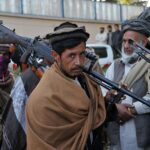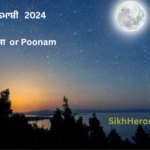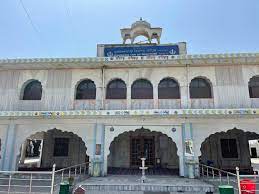In Islam, the city of Mecca is extremely significant. It is a place of worship and pilgrimage where Muslims can be alone and uninhibited by the stresses of daily life.
But did you know that it is strictly forbidden for non-Muslims to enter the city at any time of year?
Non-Muslims are even prohibited from passing through Mecca, and attempting to do so might result in fines or expulsion from Saudi Arabia.
The Quran mentions the prohibition against non-Muslim guests as follows: “Oh you who believe! Since idolaters are truly dirty, they shouldn’t approach the Sacred Mosque after this year. This fundamental idea underlies the prohibition against letting anyone who is “not clean” enter a mosque, whether they are Muslims or not.
Some claim that Mecca is a holy sanctuary and as such, non-Muslims are not permitted there.
Others claim that specific qualifications must be met to enter, noting that mosques or other sacred locations are intended for meditation and typically have minimal criteria for entrance.
It further states that non-Muslims are not permitted in this sacred city to preserve its sanctity.
Restrictions on non-Muslims are also intended to give Muslim adherents a haven of tranquility and protect the sacredness of the holy city. Non-Muslims and tourists would just increase the traffic and take away from the holiness of the pilgrimage visit if they were allowed to enter the city.
It also implies that if they are not cleaned in accordance with Islamic regulations, even Muslims are forbidden. It is therefore assumed that followers of other faiths are uninformed of these regulations and are not cleaned before entering the city.
Separating people based on their religion is known as religious segregation. The phrase has been used to refer to both instances of religious segregation that develop as a social phenomenon and examples of legal segregation, whether explicit or implicit.
For situations where people are divided based on their faith, including sociological problems, the phrase “religious apartheid” has also been used.
To begin with, no political or human authority has the authority to impose admission restrictions on Makkah and Madinah. Therefore, it cannot be contested as something that a government or leader has instituted. The case for equal treatment cannot be made here, either.
Furthermore, Muslims haven’t requested access to any religious site from its administrators. They choose whether to accept or reject visitors. Let’s say, just for the sake of argument, that the Vatican officials decide to prohibit non-Catholics from entering their city. Will they be able to be questioned by anyone? They are free to act however they like in their city.
After that, we may add that the restriction is a blatant sign that God desires to preserve Makkah as a place of worship and safety. As a result, it cannot be turned into a resort for visitors. That must stop immediately. The Prophet himself prohibited non-Muslims from entering Madinah, and the same holds there.
Yes, non-Muslims are not allowed to enter or pass through Mecca, and attempting to do so could result in fines or expulsion from Saudi Arabia. However, both Muslims and non-Muslims are welcome in Medina. The Al-Masjid Al-Nabawi, which is located in Nabawi Square, is the only exception. Mecca is a holy place and is off-limits to non-Muslims. To be there and a believer, one must meet certain prerequisites. Think of it this way: High security or cantonment regions are permitted to have people. To enter, you must a specific authorization. The same is true of Mecca. Being a Muslim in this situation is the permit.
Please also be aware that Mecca is an entirely meaningless city. It should be mentioned that Mecca and Madinah are significant Islamic pilgrimage and prayer hubs as well as holy sites where Muslims can escape the stresses of daily life. The goal of limiting access to these holy towns is to protect their sanctity and give Muslim believers a haven of safety and shelter. Millions of Muslims already go to the cities around this time each year; adding more tourists will just worsen the traffic and take away from the spirituality of the journey. From 1229 to 1923, Mecca was governed by the Ottoman Empire. The text below, which is from 1564, claims in the quote that only individuals could travel during that period. This fundamental idea underlies the prohibition against letting anyone who is “not clean” enter a mosque, whether they are Muslims or not. Even if it is rumored that Muslims cannot enter the Mosque if they are unclean, nobody can keep an eye on this. It is assumed that every Muslim will adhere to Islamic hygiene laws, which specify the proper technique to bathe and perform ablution before touching the holy Quran or offering prayers. It is a given that those who practice other religions but are unaware of these regulations are not, in that sense, pure and are therefore not permitted to enter Mecca.








